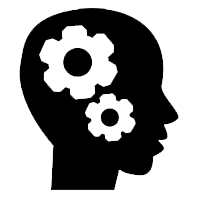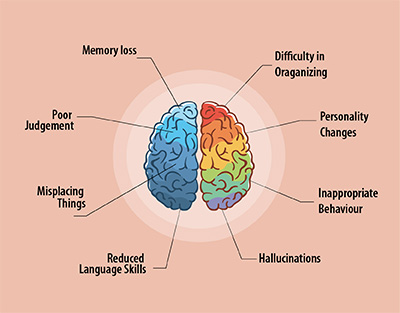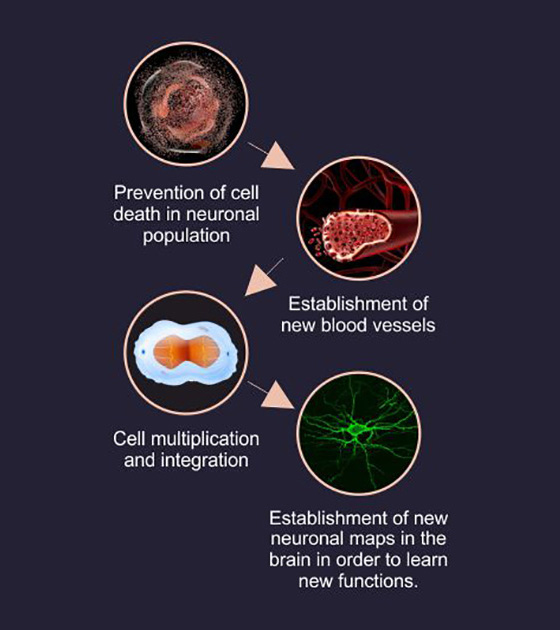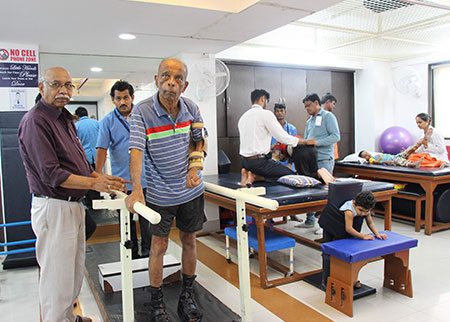treatment
Intellectual Disability
A. WHAT IS INTELLECTUAL DISABILITY?

Around 1% of the global population is intellectually disabled. Intellectual functioning and adaptive skills are the factors measured to diagnose Intellectual Disability. The average IQ is 100. An IQ less than 70 – 75 is considered as intellectually disabled. Daily living tasks such as communication skills and being able to take care of one’s own needs, are referred to as adaptive skills. Deficits in both, intellectual quotient and adaptive skills, manifest in intellectual disability.
TYPES OF INTELLECTUAL DISABILITIES
Mild Intellectual Disability
- 85% of individuals with ID are diagnosed with mild intellectual disability
- The IQ range of these individuals ranges between 50 -69
- Mild ID individuals take longer to learn to talk, but can communicate well once they learn how to
- They can be trained to be fully independent in their hygiene and self care
- Have difficulties in reading and writing
- Can come across as socially immature
- May be unable to deal with responsibilities of marriage or parenting
- Can benefit from specialized educational plans
Moderate Intellectual Disability
- Individuals with an IQ range of 35 to 49 have Moderate ID
- Face delays in learning adaptive behaviors
- May or may not be accompanied with physical abnormalities
- Face a difficulty in learning to talk
- May come across as slow in understanding and using language
- Often have limited communication skills
- May lag in basic reading, writing and counting skills
- May find it difficult to live independently, however, they can get around on their own if trained
- May also be able to take part in simple social activities
Severe Intellectual Disability
- Severe ID could occur due to a combination of medical or environmental conditions
- Generally have an IQ range of 20 to 34
- May have a noticeable motor impairment
- May be accompanied with behavioral problems and trouble learning
- Ability to look after themselves is greatly impacted
- May even exhibit signs of severe damage or abnormal development of the central nervous system
- May face problems with simple chores such as dressing themselves or feeding themselves
- May present with a gaping deficit in language and communication
- Symptoms may become obvious with age
Profound Intellectual Disability
- Individuals with an IQ range below 20
- Exhibit severe adaptive and learning delays
- May even have congenital physical abnormalities
- May exhibit social development delays
- Lack of understanding or complying of commands
- Could even be immobile
- May use extremely basic nonverbal communication
- Does not care for their own needs
- Requires constant help and supervision
SIGNS & SYMPTOMS OF INTELLECTUAL DISABILITY
- Lack of sense in self-care
- Below average performance in academics and work
- Problems in communication and reduced language ability
- Poor sense of community use
- Difficulty in self-direction, health and safety
- Inability to control emotion and behavior
- Lack of attention and concentration
- Trouble with memory
- Poor gross and fine motor coordination
- Learning, logical thinking and problem-solving difficulties and poor comprehension and response
Depending on the severity of the Intellectual Disability, the individual can be taught new skills and concepts through a modified and supportive educational system, to enable them a life of relative independence, as adults.
CAUSES OF INTELLECTUAL DISABILITY
Intellectual disability can be caused by any condition that hampers normal brain development before or after birth, or during the early childhood years.
The risk factors or causes of intellectual disability are:
- Infections that occur at or after birth
- Genetic anomalies like Down syndrome, Fragile X syndrome, and PKU (phenylketonuria)
- Metabolic disorders like hyperbilirubinemia and very high bilirubin levels in babies
- Toxicity by intrauterine exposure to alcohol, cocaine, amphetamines, or other drugs during pregnancy
- Nutritional deficiencies during pregnancy
- Trauma to the brain before or during birth; oxygen loss or early childhood sickness, such as whooping cough, measles, or meningitis
- Environmental factors like lead or mercury poisoning
- Unknown causes

B. STEM CELL THERAPY FOR INTELLECTUAL DISABILITY
Stem Cell Treatment for Intellectual Disability, involves autologous bone marrow derived mononuclear cells (BM MNCs) for transplantation. The transplanted stem cells have the ability to migrate to the area of the damaged tissue in the brain and help repair the damage in those affected areas. The effects of damage in those areas are reduced by the release of several trophic factors. These stem cells then also differentiate into several cell types of the nervous system such as oligodendrocytes, glial cells and other cells of the nervous system.
The main mechanisms that help tissue repair and regeneration include:
- Prevention of cell death in neuronal population
- Establishment of new blood vessels
- Cell multiplication and integration
- Establishment of new neuronal maps in the brain in order to learn new functions
This repair and regeneration of the stem cells in the damaged tissue, restores activity in the affected area, which translates into clinical improvements. Stem cell treatment for Intellectual Disability in India, can thus, prove to play a great role in improving the overall quality of life. Autologous BM MNCs also, do not show any adverse side effects and do not face any immune rejection. They are obtained from the same patient and thus are free of the ethical issues surrounding the use of stem cells.

THE NEUROGEN OUTCOME
In a research trial for Cell treatment for Intellectual Disability in India, at NeuroGen, improvements in areas of cognition, social interaction, communication, toilet training, self care, home living and so on were seen. Age appropriate mental ability, schooling and learning improved to some extent.
Objective radiological evidence in PET-CT Scan of improvement after cell treatment for Intellectual Disability in India
TREATMENTS THAT FOLLOW
- Physiotherapy
- Occupational Therapy
- Dietary Modifications
- Art Based Therapies
- Aquatic Therapy
- Sensory Therapy
- Speech Therapy
- Special Education
- Group Therapies / Motivational Workshops


